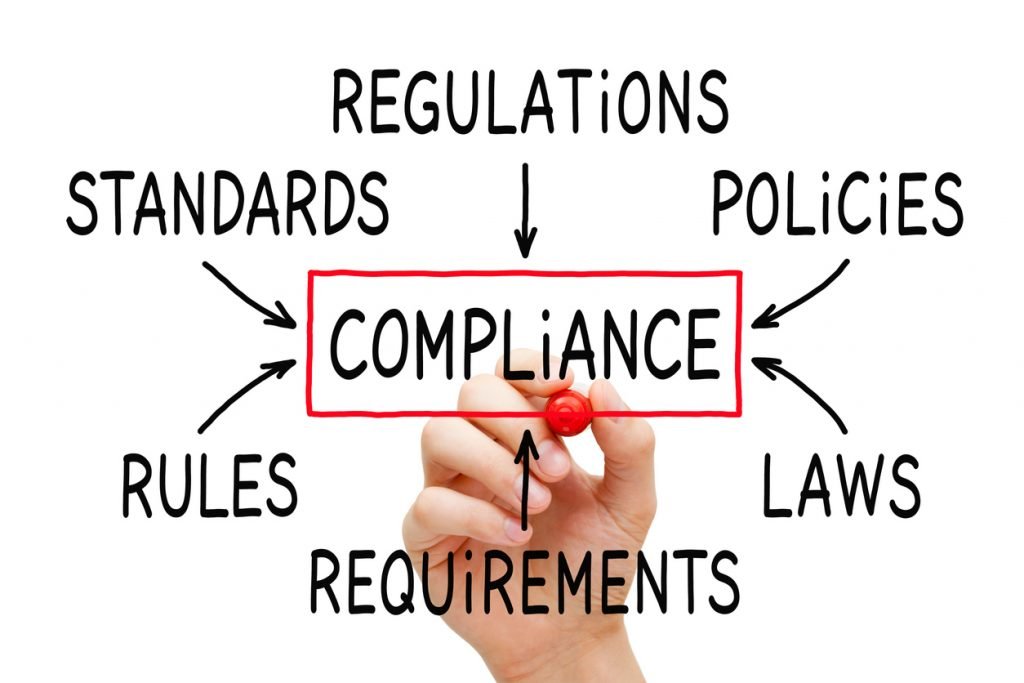The healthcare industry is a multi-trillionaire dollar industry that makes sure to take care of its patient and also maintain all of the necessary safety rules and regulations. When it comes to healthcare the entirety of it is quite compliant since if any medical organization is found to be non-compliant they have to pay a heavy price for it, quite literally. Health compliance is one of the most important aspects in the world of healthcare.
The rules and regulations exist for each of the healthcare aspects that need to be followed in a proper manner – whether it is the safeguarding of the healthcare information, following the safety rules of discarding medical rules, following the accurate procedures in medical coding and billing or documenting the information of the patient correctly.
What Is Compliance in Healthcare?

The process through which all of the professional, legal and moral compliances are followed under healthcare refers to compliance in healthcare. In layman’s terms, one could easily simplify it by saying that it is simply following the rules and regulations that have been laid down in healthcare. All of the rules are intricate and quite complex. They are also updated on a frequent basis oftentimes changing the workflow and the operations, audits, education, compliance updates and much more.
One of the most important things that must be kept in mind is that the process of healthcare compliance needs to be followed by every medical organization out there no matter how big or small their organization is. The healthcare compliance services are a part of the complete approach which includes risk management, healthcare governance, and GRC which is important when creating a highly reliable, and safe healthcare environment.
Incorporating GRC into your organization has many benefits-

- Optimizes the entire workforce in your medical practice
- Measures the performance and quality
- Ensures that the compliance and safety levels are always high
- Tracks the security and the facility access
- Enrolls the medical provider and measures their capability
Requirements For Healthcare Compliance and The Organizations Responsible for Them
A number of different states and federal organizations tend to be the main governing body when it comes to healthcare compliance. For instance, the DEA (Drug Enforcement Administration) along with the FDA (Food and Drug Administration) both aid in the regulation of distributing and creating the necessary medication. They also make sure that the efficacy and safety of the biological products, medical devices and medications are up to the mark. The Food and Drug Administration also help in providing information that is backed up by science and is accurate.
The HHS (Department of Health and Human Services) along with the OIG (Office of the Inspector General) help in the protection against any fraudulent practices that can take place when the process of medical audit is taking place. They ensure to reduce fraud, waste and the misuse of healthcare money. An annual work plan gets published every year by the OIG in order to announce the specific topics which get targeted every year thereby making sure that the organization have a head start on the audits that they are going to face every single year. This is where having healthcare compliance software can make things easier for your organization.
The HHS and OIG are responsible for providing a myriad number of educational materials to the medical organizations which can help in striving for proactive compliance with the healthcare safety rules and regulations. Moreover, another kind of important organization also puts their primary focus on the process of healthcare compliance to ensure that it runs smoothly. For instance, the TJC (The Joint Commission) certifies and accredits organizations, such as other healthcare and hospital systems that tend to follow healthcare standards for patient care safety and maintaining the top-notch quality that matters.
The NAHQ (National Association for Healthcare Quality) completely fulfils the role that is quite similar to that of the Joint Commission, but primarily speaking this is followed when it comes to the credential process and healthcare plans. The CMS (Centres for Medicare and Medicaid Services) implement different quality inventiveness in order to promote health care that is high in quality through the process of public disclosure and accountability. These measures tend to play a crucial role when it comes to improving the overall quality and also public reporting.
Examples Of Healthcare Compliance That You Should Know

There are a number of regulatory compliance in healthcare that one should know about. It is a necessity that the medical practices follow the HIPAA guidelines for healthcare professionals that have been laid down.
- The HIPAA (Health Insurance Portability and Accountability Act) released during the year 1996 helps in protecting the privacy of the patients and also requires organizations to make sure that the medical records stay intact and safe.
- The Social Security Act helps in the process of funding Medicaid, Medicare, Health Insurance programs for the children and much more.
- The HITECH Act (Health Information Technology for Economic and Clinical Health) which was approved in the year 2009 expanded by HIPAA helps in providing certain compliances related to information technology. It aids in adopting EHR (Electronic Health Records).
- The False Claim Act ensure that the process of submitting a false claim to an insurance provider is not only illegal but if it does get performed the penalty charges are very high which is why the filing of false claims has been at an all-time low.
- The CMS (Centres for Medicare and Medicaid Services) proceeded with the Interoperability and Patient Access Final rule which helps in providing the patients with proper control and better access to the EHR (Electronic Health Information).
These days healthcare compliance has been quite a necessity since the stakes are quite high. Without a proper healthcare compliance plan, a patient’s condition can wither mean life or death. Moreover, minor mistakes can also lead to worse consequences for the outcome for the patients and their safety. Any medical organization should follow healthcare compliance in order to ensure that all of the procedure is followed in a proper manner. Companies like Synergy HCLS can provide you with much-needed assistance in this matter.
